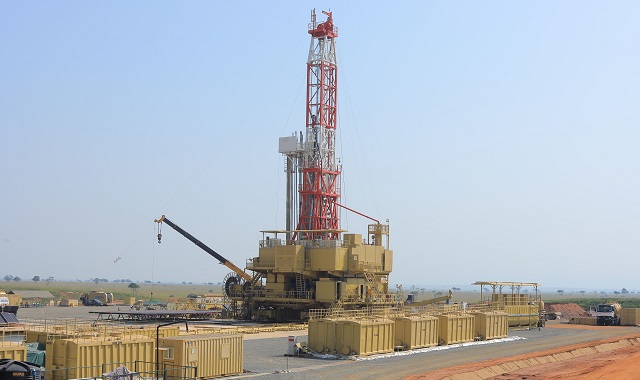
NEWS ANALYSIS | THE INDEPENDENT | The debate over an energy transition, the migration from ‘dirty’, nonrenewable forms to renewable, green and clean energy, continues in Uganda, especially over the viability of future fossil oil projects.
Uganda is currently the main focus of the global new petroleum greenfield investments and its popularity has been enhanced by the fight against it by local regional and international charities, which claim that the project is a source of violation of environmental and human rights.
The crusaders against it have targeted financial institutions urging them to stay away from supporting it, especially the East African Crude Oil Pipeline (EACOP). However, this year has seen more intensified activities by the oil and gas companies, including TotalEnergies, CNOOC Uganda and the Uganda National Oil Company (UNOC), which are leading the commercial development phase, as well as the newly licensed exploration companies.
But as these developments go on, some experts are casting a shadow on the profitability of petroleum oil in years to come.
Dr Paul Bagabo, a consultant with the Natural Resource Governance Institute, says investments in the oil and gas sector should be done cautiously especially .
“Investment in renewable energy sources is increasing and countries are setting deadlines for migration from petroleum to electric-powered vehicles, which means the demand for fossil fuel products is going to decline. So what will Uganda use her oil on?” Bagabo wondered.
Speaking at a training of journalists on The Impact of the Extractives Sector On Climate Change, Bagabo said that this means the country will have to give incentives both in the investment and the marketing of the product, which will make it costly.
“Our oil will therefore be more expensive than imports and then imports will flood the country and we can’t sell our product. The country will devise other mechanisms, like creating incentives to try to make the oil valuable,” he said. Fossil oil and coal have been termed the major emitters of carbon among all sources of formal energy, whether they are imported or locally produced.
However, Bagabo notes the tricky situation Uganda is in as it is a matter of necessity for the country to continue using petroleum oil. “All that can reduce, but remember our industry depends also a lot on fossil fuels. If we reduce the imports of fossil fuels the development of the country will suffer. But as a country we shouldn’t invest a lot in the oil sector because of the falling demand necessitated by the energy transition,” he said adding that at full transition, the global cost of crude oil will be 25 dollars per barrel compared to the current average price of 86 dollars.
Uganda expects to start commercially producing oil in 2025 and construction of the necessary infrastructure is in high gear. Ground works for the crude export pipeline have started, while drilling in the fields of Tilenga and Kingfisher commenced this year.
TotalEnergies’ Central Processing Facility in Buliisa is also ongoing, with the structures visibly off the ground.
Philippe Groueix, the General Manager, TotalEnergies Uganda says there is no going back on their investment programs now.
“We’re also showcasing the best multi energy approach in Uganda. This project is in the face of the world and once successful, it will establish Uganda as a possible investment hub, with this whole ecosystem being developed,” he told the ongoing Uganda International Oil and Gas Summit in Kampala.
He says they are also driving the energy transition in Uganda with investments in renewable energy, having acquired Total Eren Groupe’s Uganda subsidiary which also ran the Soroti solar power plant.
“We’re developing a flagship project, which gives us the opportunity to introduce the best in class technology available worldwide and a multi-energy approach of enabling LPG to transform the country and replace biomass.”
In June this year, TotalEnergies completed the 100 percent acquisition of Total EREN and is now operator of the Soroti 10MW Solar PV, the 1st Grid connected solar plant in Uganda.
Dr Bagabo says the advantage Uganda has is the presence of other fuel minerals that will be demanded in the energy transition, and their demand is increasing.
“The minerals will see higher demand in the transition process. Tin, cobalt, tungsten and rare earths, but the demand for transition minerals is expected to last only up to 20 years, as already cobalt demand is already falling in consumer markets,” he says.
***
URN
 The Independent Uganda: You get the Truth we Pay the Price
The Independent Uganda: You get the Truth we Pay the Price






Fossils will be needed for a very longtime. There’s peak oil around the corner and a barrel will rise upto $150 …meaning our pump prices will reach 10,000 shs per litre .
This will happen because investments in oil is declining…Saudi cant still claim the 200 billuion reserves, might be less than half is remaining.
The world as we know cannot move ahead without oil.
we await Peak oil and thank our President Museveni for being very understanding and steadfast.
M7 well done bwana..